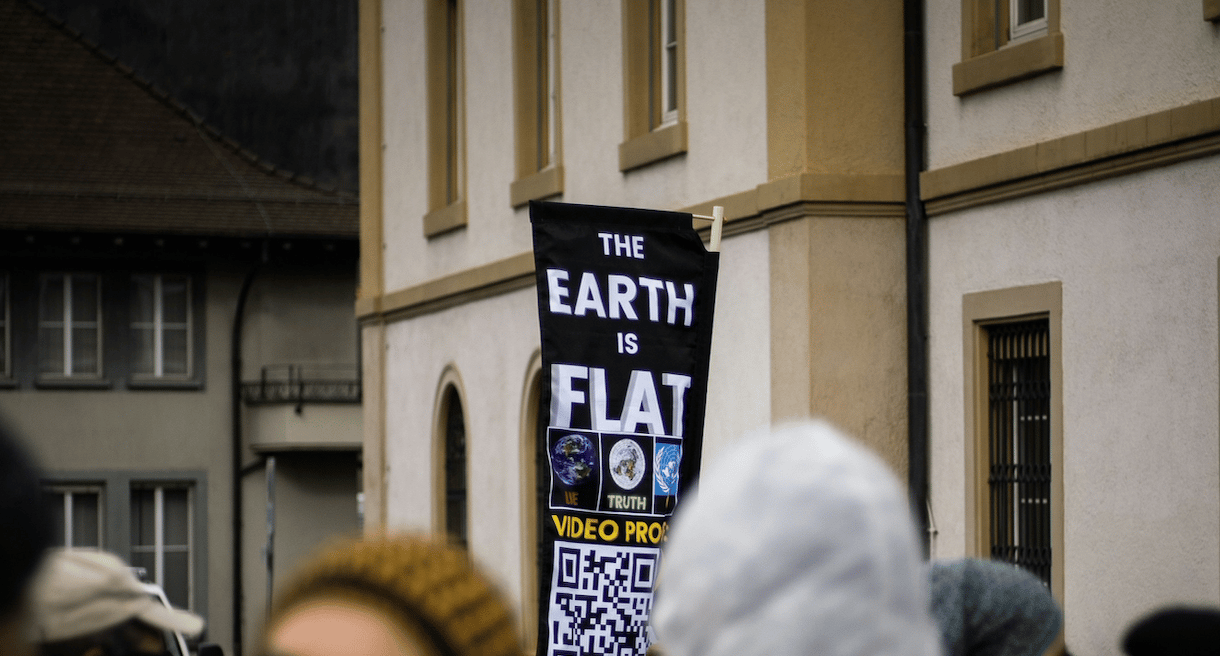- Pique Behind the Curtain from Pique Action
- Posts
- Fear, Fact and Fiction: Why Climate Conspiracies Stick Around 📰
Fear, Fact and Fiction: Why Climate Conspiracies Stick Around 📰
What if climate change wasn’t about the scientifically catastrophic impact of fossil fuels, but rather secret plans to lock you in your home or force you to eat crickets? Unfortunately, these (increasingly bizarre) climate conspiracy theories aren’t just fringe internet jokes, they’re shaping public opinion and stalling real solutions. Read on to learn about these tall tales, and why we can't quite shake 'em!
— Written by Lyle Jarvis

Photo: Kajetan Sumila on Unsplash
Do you enjoy our weekly newsletter? Please forward to a friend! If you don’t already subscribe you can do so here 👉 subscribe here!
The Climate Conspiracy
More than a hundred years ago, scientists began to raise questions around the human influence on global temperatures. Decades later, in 1965, climate scientists summarized the risks of carbon pollution to President Lyndon B. Johnson, and by the 1970s, these (then) theories started to pick up steam. Until eventually, those theories became fact, and 99.9 percent of scientists would come to the overwhelming majority conclusion: climate change is real, and humans are the culprits.
And here we are, years, decades (some of our hottest recorded) later, and people are still arguing that real climate science is up for debate.
Climate misinformation has moved far beyond denying the science itself. Conspiracies (and trolls online) now target the solutions – branding common-sense ideas like bike lanes or renewable energy as tools of government control. Or thinking world leaders want you to survive only on insects.
Nevertheless, they're gaining traction, and tapping into deeper fears about freedom, privacy, and power. While these claims might sound laughable, they’re influencing policy debates and eroding public trust at a moment when climate action is more urgent than ever
False Narratives Floating Around
One of the most potent examples is the so-called “climate lockdown” theory. It spins the pandemic-era experience of lockdowns into a hypothetical future where governments will restrict travel, ration resources, or keep people indoors under the alleged guise curbing emissions. Because these claims focus on what could happen rather than what is happening (i.e., the actual science stuff), they’re tough to debunk with facts alone.
The same applies to distorted narratives around the “Great Reset” or urban planning tools like 15-minute cities, which are reframed as dystopian control schemes rather than sustainability measures. These conspiracies thrive not because they’re true, but because they are plausible enough to spark fear.
How are People Still Falling for This?
Psychologists and misinformation researchers point to a mix of emotional and identity-based factors. Conspiracies often lean on larger themes like government hypocrisy that provoke a stronger reaction than charts or climate models.
They align with preexisting political identities and distrust of institutions, making them “feel” right even when evidence says otherwise. Community forums like Reddit fuel the frenzy. And from a media perspective, disinformation is cheap, fast, and attention-grabbing, while truth is slow, technical, and often less emotionally satisfying.
Key resource: Here’s a guide for countering disinformation effectively from the Carnegie Endowment for International Peace.
Part of what makes climate conspiracies so sticky is that they often contain a kernel of reality. As this article from Time Magazine notes, things like installing traffic cameras or limiting car use in cities are real policies, which are designed for safety or sustainability, and can trigger genuine discomfort about surveillance or lifestyle changes.
Conspiracy narratives (and there’s scientific research to back this up) succeed because they prey on existing unease, stretching a small truth into a sweeping claim about government overreach. Recognizing the legitimate concerns behind these fears is key to addressing them, but it doesn’t make the leap to “climate lockdowns” or insect mandates any more credible.
👀 Some Stories You Might Have Missed This Week 🗞️📺:
According to the EIA, Solar may account for half of new US electricity added this year (Reuters)
Solar Growth is also keeping China’s emissions on a downward trend (CarbonBrief)
Scientists are exploring whether encouraging the growth of phytoplankton could draw down carbon (Grist)